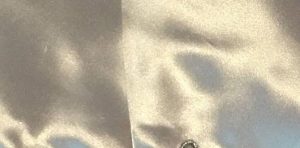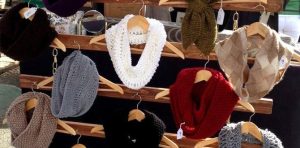When it comes to the world of taxation, even seemingly simple items like scarves can have complex implications. Understanding whether scarves are taxable goods and the regulations surrounding them is essential for both consumers and businesses alike. In this article, we will delve into the nuances of the tax treatment of scarves, including exemptions, specific regulations, and examples of cases where scarves have been subject to taxation.
General Overview
Scarves, often considered fashion accessories, can fall into a gray area when it comes to taxation. While basic clothing items are typically exempt from sales tax, certain accessories like scarves may be subject to taxation depending on various factors.
Explanation of Taxable Goods
Taxable goods are items that are subject to sales tax when sold to consumers. In the case of scarves, their taxability can vary depending on the state or country in which the purchase is made. Some jurisdictions consider scarves as clothing accessories and therefore exempt them from sales tax, while others may classify them as luxury items subject to taxation.
Tax Exemption
Not all scarves are necessarily taxable. In many cases, certain criteria must be met for scarves to qualify for tax exemption.
Criteria for Tax Exemption
To be eligible for tax exemption, scarves may need to meet specific criteria set forth by the tax authorities. These criteria could include the material used, the intended use of the scarf, and the sales price threshold.
Regulations
Regulations governing the taxation of scarves can vary widely depending on the location. It is crucial to be aware of the specific rules and guidelines in your jurisdiction to ensure compliance.
Specific Regulations on Scarves
Some jurisdictions have specific regulations regarding the taxation of scarves. For example, certain states may have a blanket exemption for clothing items, including scarves, while others may impose a sales tax based on the item’s value or classification.
Examples
There have been cases where scarves have been subjected to taxation, sparking debates and discussions among consumers and retailers.
Cases of Scarves Being Taxed
In some instances, scarves have been classified as luxury items rather than essential clothing, leading to their taxation in certain jurisdictions. These cases highlight the complexities surrounding the tax treatment of scarves and similar accessories.
Conclusion
Scarves can be a contentious topic when it comes to taxation, with varying rules and regulations across different regions. Understanding the tax implications of scarves is crucial for both buyers and sellers to navigate the complexities of sales tax laws effectively.
FAQs
1. Are all scarves taxable?
Not necessarily. The taxability of scarves depends on the specific regulations in your jurisdiction and whether the items meet the criteria for tax exemption.
2. How can I find out if scarves are subject to tax in my area?
You can consult your local tax authorities or check online resources to determine the tax treatment of scarves in your region.
3. Are handmade scarves taxed differently from mass-produced ones?
The tax treatment of handmade vs. mass-produced scarves can vary depending on the jurisdiction and the criteria set for tax exemption.
4. Can scarves be considered essential clothing items for tax exemption purposes?
While some jurisdictions classify scarves as essential clothing and exempt them from taxation, others may categorize them as accessories subject to tax.
5. What should retailers do to ensure compliance with scarf tax regulations?
Retailers should stay informed about the specific tax laws in their area, accurately classify their products, and maintain proper records to ensure compliance with scarf tax regulations.



